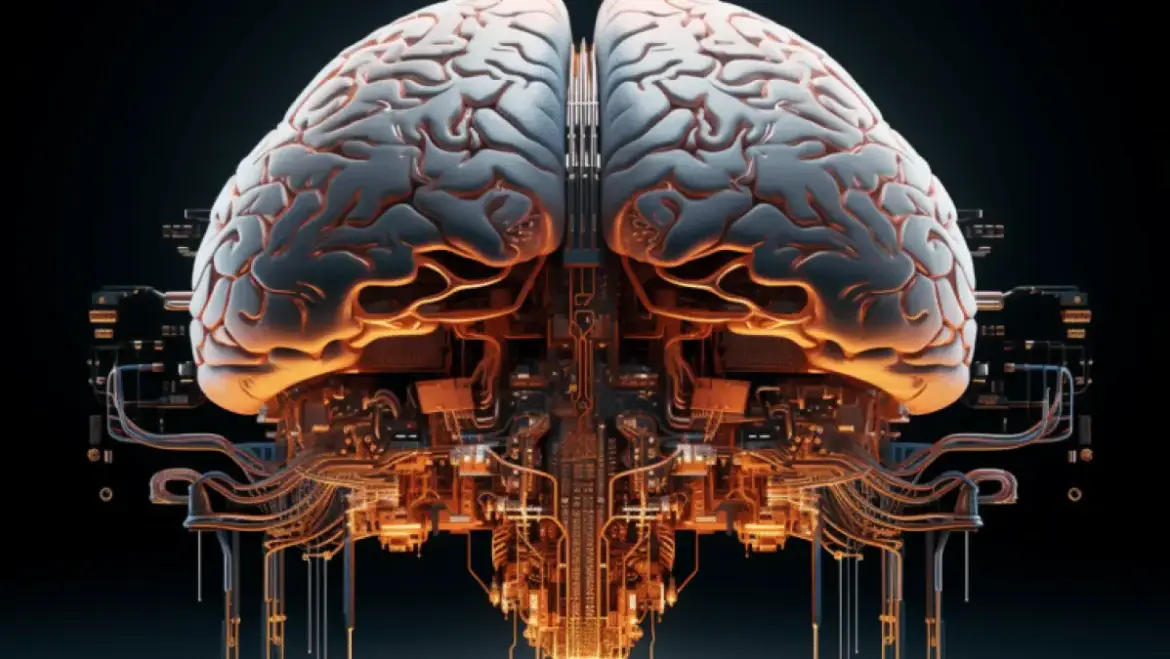Musical Learning: An Ally for the Brain at Any Age
The effects of learning a musical instrument have been widely studied in recent years. This activity generates a high level of brain responsiveness. The processes involved are correlated with non-musical skills, including language, motor skills, memory, attention, and perception. Musical training is therefore a relevant cognitive stimulation tool, even presenting therapeutic potential.
This article is based on five scientific studies and a literature review conducted by researchers from Quebec and Europe over the past decades. It presents the characteristics of musicians’ brains, the beneficial effects of musical training on the cognitive development of children with or without learning disabilities, as well as its effects on brain plasticity and brain aging.
The Brain of Musicians
Several authors argue that musicians’ brains exhibit certain particularities. It has been demonstrated that musical training involves cognitive processes related to non-musical skills and enhances their functioning and coordination. Indeed, various aspects of cognition, motor skills, and the emotional network are engaged. Neuropsychologists argue that certain regions of musicians’ brains are larger due to the training of these processes (Fauvel et al., 2012). Studies reveal that their language abilities are higher and they find it easier to learn a new language. The results even demonstrate an improvement in overall IQ. (Moussard et al., 2012).
These effects can be noticeable as early as childhood, as learning a musical instrument leads to the improvement of various skills.
Cognitive Development of the Child
Several studies highlight the beneficial effects of musical learning on children’s cognitive development, demonstrating that the benefits are numerous. In addition to boosting self-confidence and serving as a creative outlet, this activity contributes to the improvement of various cognitive processes.
Several studies highlight the beneficial effects of musical learning on children’s cognitive development, demonstrating numerous benefits. In addition to boosting self-confidence and serving as a creative outlet, this activity contributes to the improvement of various cognitive processes. Therefore, musical training is likely to enhance language skills such as comprehension, segmentation, and manipulation of language sounds, which are crucial in learning to read and write. Studies also reveal that these effects are noticeable in a short period of time. As few as fifteen sessions, each lasting twenty minutes, are sufficient to observe these effects (Frey and Sappey-Marinier, 2018). Obviously, perseverance is required for broader, long-term effects.
Beyond language, musical processing engages neural resources similar to those involved in other non-musical activities. In his book on the effects of music on cognitive skills, Jonathan Bolduc, a professor of music education at Université Laval and holder of the Canada Research Chair in Music and Learning, argues “that various components of music, including rhythmic organization (study of different metrics, understanding of binary and ternary measures), would contribute to a better mastery of fraction concepts” in mathematics (2009).
Other associated processes also benefit, such as memory and attention. Certain musical training exercises would also enhance body tone, thereby improving posture. (Moussard et al., 2012). Benefits are also notable for functions such as planning, inhibition, conflict resolution, and cognitive control. (Fauvel et al., 2012).
Musical practice is also an appropriate tool for treating certain learning disorders in children.
ADHD
Children with ADHD experience regulation difficulties in tasks that require organization, planning, and inhibition. According to Linda Essiambre, who holds a PhD in Education from the Université du Québec à Rimouski, Pauline Côté, who holds a PhD in Social Psychology from the Université de Montréal, and Nicole Chevalier, a professor and researcher at the Université du Québec à Montréal, musical practice helps these children regulate themselves by fostering interest and creativity. Indeed, the authors argue that this practice has a positive impact on hyperactive children in a school setting, particularly in terms of learning, behavior, and motor skills. Moreover, their study reveals an improvement in posture among children with ADHD who have taken guitar lessons. They also note “a significant decrease in tics and stuttering in the subjects” (2010).
Dyslexia
As previously mentioned, the processing of music and language involves common underlying cognitive processes. The positive effect of music on learning to read is highlighted in several studies. The Musical training would therefore be a relevant tool, among the methods used by speech therapists, for the treatment of dyslexia. Researchers from the Cognitive Neuroscience Laboratory in Marseille have conducted studies to illustrate this finding. The results show that “only 3 days of intensive musical training are sufficient to modify the deficit in dyslexics in tasks involving auditory perception of the temporal components of speech.” These authors note “improvements in auditory attention, phonological awareness (syllabic blending), reading speed, and repetition of pseudo-words” compared to children who have not undergone musical training.(Habib et al., 2013). Musical training would therefore improve language skills in children with dyslexia.
Musical training would therefore be a relevant tool, among the methods used by speech therapists, for the treatment of dyslexia. Researchers from the Cognitive Neuroscience Laboratory in Marseille have conducted studies to illustrate this finding. The results show that “only 3 days of intensive musical training are sufficient to modify the deficit in dyslexics in tasks involving auditory perception of the temporal components of speech.” These authors note “improvements in auditory attention, phonological awareness (syllabic blending), reading speed, and repetition of pseudo-words” compared to children who have not undergone musical training.(Habib et al., 2013). Musical training would therefore improve language skills in children with dyslexia.
The beneficial effects of this activity also benefit people of all ages. The brain indeed adapts to learning experiences throughout life.
Brain Plasticity
Brain plasticity refers to the brain’s ability to restructure and recover, and to modify itself during learning processes. It allows regions of the brain to change their anatomy, for example, by increasing the size of the cell body and nucleus of neurons to become more efficient. Since multiple tasks are required both sequentially and simultaneously during musical practice, several brain areas are activated and modified. These tasks include, for example, reading sheet music, planning the motor activity of both hands, and memorization processes. (Moussard et al., 2012).
Neuropsychologist Aline Moussard, speech therapist Françoise Rochette, and teacher-researcher Emmanuel Bigand are interested in the use of music as a cognitive stimulation tool. In their literature review, they illustrate how musical practice can offer therapeutic perspectives, particularly due to the brain’s plasticity. “Repeated musical practice would modify the organization of cortical areas related to these functions at three levels.” “1. increasing the number of neurons involved,” “2. promoting their degree of temporal synchronization, and” “3. increasing the number and strength of excitatory and inhibitory synaptic connections,” the authors assert. These effects can also occur in the short term, such as half an hour per week after 15 months of training.(Moussard et al., 2012).
Musical practice influences the reactivity and organization of brain regions not specific to music and thus allows for an improvement in underlying processes, making this activity equally interesting for older individuals.
Aging
Cognitive aging. They suggest that the stimulation of brain functions it generates helps to mitigate the atrophy of brain regions underlying these functions. (Fauvel et al., 2012).
Brain plasticity occurs throughout life. Therefore, elderly individuals can undertake new learning, such as learning to play a musical instrument. Musical training constitutes a relevant activity to mitigate cognitive decline, with its benefits linked to various brain regions and mental operations. “The fact that musical practice simultaneously engages these different neuronal networks would optimize its supposed effect in the context of normal aging, where cognitive decline is partly caused by neuronal dysconnections that disrupt the functional integration of multiple systems.” (Fauvel et al., 2012). The authors suggest that this activity, by targeting multiple mental operations simultaneously, could be more suitable than training programs that stimulate them independently. In addition to allowing the brain to adapt (brain plasticity), it provides a sense of satisfaction and personal development, and reduces the risk of depression. (Fauvel et al., 2012).
In their literature review cited earlier, Moussard and colleagues suggest that musical practice may also prevent age-related pathologies by strengthening cognitive, motor, emotional, and social skills, in addition to delaying the effects of aging. Furthermore, these authors argue that musical practice, by stimulating mental functions and causing physiological and hormonal effects, could help prevent dementia, although further studies are needed to strengthen this observation.(Moussard et al., 2012).
In summary, learning a musical instrument offers several benefits. In addition to fostering self-esteem and allowing for the expression of creativity and emotions, this exercise is likely to improve certain cognitive processes. It appears beneficial for child development, whether with or without learning disorders, for enhancing non-musical skills, and for improving the quality of life for elderly individuals.
There is an abundance of research pointing in this direction. However, the authors specify that further studies need to be conducted to solidify these findings. Indeed, these data are nonetheless interesting and inspiring. Music carries cultural identity. For some, music is indispensable; for others, it is necessary. Its significant role in human activities and its crucial role in social cohesion are remarkable.
Mélanie Valcourt-Robichaud, B.A.
Sources
Bolduc, J., 2009. “Music and cognitive skills in preschoolers,” in “Research in music education”, 27, 1-16, University Laval, https://www.mus.ulaval.ca/
Essiambre, L., Côté P. et Chevalier, N., 2010. “Music learning in children with ADHD,” Education Canada, Vol. 49 (2), www.cea-ace.ca
Fauvel, B., Groussard, M., Desgranges, B. et Platel, H., 2012. “Musical practice and brain plasticity: Does musical expertise help preserve neurocognitive aging?” In Review of neuropsychology 2012/2 (Volume 4), pages 131 à 137. Éditions John Libbey Eurotext ISSN 2101-6739. DOI 10.1684/nrp.2012.0211, https://www.cairn.info/
Frey, A. et Sappey-Marinier, A., 2018. “Music and language development.” Resources, “Reading and Writing: Research in ESPE, 19.” Hal-02430656, https://hal.science/
Habib, M., Lardy, C., Desiles, T., Commeiras, C., Chobert, J. et Besson, M., 2013. “Music and dyslexia: towards an intermodal cognitive-musical rehabilitation of dyslexia,” in Developments 2013/3 (n° 16-17), pages 36 à 60. Éditions De Boeck Supérieur ISSN 2103-2874. ISBN 9782804185596. DOI 10.3917/devel.016.0036, https://www.cairn.info/
Moussad A., Rochette, F. et Bigand, E., 2012. “Music as a tool for cognitive stimulation,” In L’Année psychologique 2012/3 (Vol. 112), pages 499 à 542, Éditions NecPlus. ISSN 0003-5033. DOI 10.3917/anpsy.123.0499, https://www.cairn.info/


